We are pleased to invite you to the second ETN Global online webinar within the series “R&D Activities on sCO2 in Europe”, this time focusing on components challenge – compressors, taking place online on 5 December 2022 from 14.00 till 15.00 CET.
The webinar will cover:
Don’t forget to register here and see the full agenda here.
The presentations and recording of the event are available here.

BUILD TO ZERO is a technology company with the mission to achieve a net-zero industry by developing innovative and financially viable Power-to-Heat + Thermal Energy Storage (PtH+TES) solutions to decarbonize its thermal processes.
Building on a highly experienced team that has designed, built, and operated more than 17 GWh of thermal energy storage in CSP plants over the past 15 years, BUILD TO ZERO has developed its ThermalBox™ net-zero heat product that transforms variable renewable electricity into industrial-grade heat up to 400°C in a 24/7 basis. This product allows industry to achieve a complete decarbonization solution for its processes without the need for subsidies or regulatory changes.
BUILD TO ZERO’s main role is in WP6, providing the basic and detailed engineering of the new demonstration plant, the integration of the concept ad equipment inside an existing CSP installation, supporting the construction and commissioning activities, and participating in the operation, troubleshooting and performance analysis along the experimental campaign of the Demo site, thanks to its long experience in CSP and conventional energy commercial plants.
BUILD TO ZERO, using its knowledge on technology development, will be also involved in WP4, WP5, and WP7 for the SOLARsCO2OL concept integration and upscaling in real power plants and the assessment of the guidelines to replicate the project for different markets and power demands; and helping the Consortium to define the future roadmap of the technology.
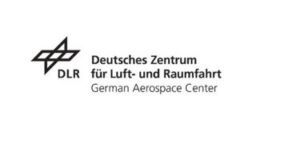
DLR is the Federal Republic of Germany’s research centre for aeronautics and space. We conduct research and development activities in the fields of aeronautics, space, energy, transport, security and digitalisation. DLR uses the expertise of its 55 research institutes and facilities to develop solutions to these challenges. Our 10,000 employees share a mission – to explore Earth and space and develop technologies for a sustainable future. In doing so, DLR contributes to strengthening Germany’s position as a prime location for research and industry.
The Institute for Solar Research is concerned with the use of solar energy on Earth. Our research focuses on concentrating solar thermal systems for the generation of electricity, heat and fuels, on solar energy meteorology, methods for optimising the operation of solar thermal power plants and photovoltaic systems, as well as the energy evaluation of buildings.
The Évora Molten Salt Platform (EMSP) is a research infrastructure jointly managed and operated by the Renewable Energies Chair of the University of Évora and DLR, aiming at the development of applied research in molten salt-driven CSP, SHIP and thermal energy storage components, systems and technologies. Within SOLARSCO2OL, DLR’s main role is to support the dynamic simulation and control activities (WP5) as well as the demonstration campaign at the EMSP (WP6).
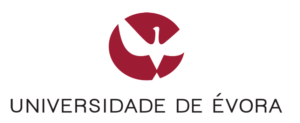
Established in the XVI century, the University of Évora is the cornerstone High Education Institution in the region of Alentejo. Aiming at attracting and keeping young and qualified human resources in the Region, UEvora has been investing, since 2009, in specific capacity building and research capacities in the field of Solar Energy, offering a complete 1st – 3rd studies cycle offer in Solar Energy Engineering and, since 2010, with a dedicated research group in the field – the Renewable Energies Chair (UEvora-CER).
With a total staff of 25 researchers, technicians, MSc or PhD students, UEvora-CER leads the National Research Infrastructure on Solar Energy Concentration (INIESC). Part of the National Roadmap of Research Infrastructures and participating in the EU-SOLARIS Consortium (labelled by ESFRI as ‘Landmark’ and on its way to become an ERIC5), INIESC comprises one of the most outstanding European RI assets in the field of Molten Salt research: the Évora Molten Salt Platform (EMSP). EMSP is owned by UEvora and jointly operated with DLR in the framework of a dedicated Cooperation Agreement established in 2015.
UEvora is responsible for preparing the site to receive the components and to provide access points to Molten Salts and electricity supply in medium voltage at the facility Power sub-station, enabling the realization of the experimental components of the demonstration activities. Each component responsible needs to provide all the hardware necessary to couple the infrastructure access points to the equipment/component (e.g. medium to low voltage transformers, cabling or boards, MS hydraulic coupling, etc.). UEvora is responsible for the access and operation of the facility as to cope with the requirements defined, for each sub-system and component as well as for the overall system to be developed in the project.
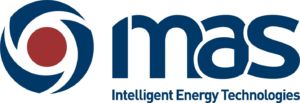
MAS S.A. is a niche European company specializing in the design, development and deployment of advanced Automation, Control, Protection and Supervisory systems with focus on the Power Production, Heavy Industry, Oil & Gas, Marine & Transport sectors. Headquartered in Athens Greece, MAS operates in over 25 countries, covering a wide geographical area that spreads from Eastern Europe and the Russian Federation to the Balkans, Turkey, and parts of Asia.
MAS is part of the Woodward aftermarket group and thus part of the biggest design and manufacturing independent group for controls, protection and monitoring solution for prime mover machinery. It is the Exclusive Representative, Central Distributor Facility, Business Partner, and Training Centre for Woodward in 24 countries, including the Eastern Mediterranean and the Balkans countries, as well as the second company in Europe to be a Recognized Turbo Retrofitter (RTR). Further to its engineering activities, the company also represents and provides technologically advanced industrial and marine components that complement its products and services, manufactured by major American and European companies.
MAS is one of a few companies that offer pioneering technologies and tools that drive the Fourth Industrial Revolution and lead the transformation of the Energy Sector. The company delivers innovative software solutions specifically designed and developed to address the highly specialized and targeted requirements of the Power & Energy Field, while the focus is on the development of unique platforms that will best meet needs and achieve specific goals.
With over 45 years of expertise and a wide commercial coverage, MAS has developed the skills and extensive know-how to successfully undertake complex turn-key projects. Its manpower consists of highly specialized engineers, forming a team considered as one of the best in its field. Benefiting from a flexible structure, the company can be equally efficient and competitive for all kinds of projects varying from straightforward to highly demanding. Strict procedures conforming with international standards ISO 9001, ISO 14001, OHSAS 18001 and ISO 27001 are applied to our operations, as quality and reliability are core values.
MAS S.A. undertook the implementation of the controls and monitoring system for the project. Our control system shall use a small, state of the art controller (Woodward Flex500) as the core of the system. Flex500 is commercially available from Woodward for turbines control and capable to be programmed for every kind of application.

Baker Hughes (NYSE: BKR) is an energy technology company that provides solutions for energy and industry customers around the world. With operations in over 120 countries and over 60,000 employees, it designs, manufactures and delivers cutting-edge technology solutions for customers who drive energy, making it safer, cleaner and more efficient for people and the planet.
From the first rotary drill to the world’s largest portfolio of compressors and gas turbines, from digital solutions that deliver results to modular subsea technology, Baker Hughes’ inventions have revolutionized the industry for over a century.
Baker Hughes is making its impact on the environment by putting in place low-carbon technologies to help customers achieve environmental and innovative goals for the future of energy.
Baker Hughes operates in Italy mainly through Nuovo Pignone, with over 5,000 employees on seven production sites.
In Italy, Baker Hughes designs and builds turbines and compressors for the energy market thanks to the technological heritage of Nuovo Pignone, which represents for the group the worldwide center of excellence for the research, development and production of gas turbines and compressors, pumps, valves and related services. In Florence, in addition to the state-of-the-art plant for digital technologies applied to production processes, there is also the Turbomachinery Process & Solution Research and Development activity center, with over 1,000 highly skilled engineers involved in the development of new technologies, and the iCenter, for remote monitoring and diagnostics of machines installed at Baker Hughes’ customer sites around the world.
BH Centrifugal compressor technology design and manufacturing will be implemented in this project to increase overall cycle efficiency, Plant flexibility (start/stops/large operating range in off-design conditions) and plant control philosophy.

OCMI-OTG is a worldwide leader in manufacturing glass machinery and bearings/gear units. The group was established by Mr. Alfredo Gusti with the name of Gusti Alfredo SpA. Since the very beginning the core business was both the manufacturing and engineering of mechanical components with a special focus on gears and transmissions. The core business of the group is broken into two divisions: OTG specialises in manufacturing made-to-order reduction gears and overgears specifically for applications in the oil and gas industries; and OCMI – a leading manufacturer of machineries and finishing lines for the production of pharmaceutical and cosmetic glass containers from glass tubes. With just under 60 employees, a turnover of around 20 M€ and with almost 90 per cent of its production dedicated to exports, OCMI-OTG can be described as a pocket-size multinational, a typical family-run SME that has managed to succeed in international markets.
In SOLARSCO2OL OCMI-OTG will participate with OTG division whose core business is the manufacturing of custom gears and gear units for industrial application, high speed, step-up, railway, single or multi-stage gears unit and test bench. OCMI-OTG references include the most important manufacturers of turbines, compressors (among them FTM, NP-BHGE) and pumps and the top engineering companies. OCMI-OTG offer different kind of services to its customers from the Design and simulation of gear units (defining the basic characteristics of the project also thanks to the support of analysis software – dynamic analysis, static analysis, sound and vibration analysis, etc ) to manufacturing and testing and certification of finished products to the test procedures specified by the customer. OCMI-OTG R&D team is strongly active in opening new market opportunities thanks to innovation and it gives aid to the sales department in preliminary phase to search the best solution to comply the client performance requirements. OTG’s product portfolio includes PTMb horizontal parallel gears for API centrifugal pumps, turbo generators or compressor applications, GR right-angle gears, HS parallel shaft gears, high speed parallel reducing gear boxes for turbo expander applications and many auxiliaries for turbines and compressors.
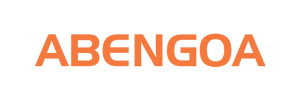
Abengoa is an international company that applies innovative technology solutions for sustainable development in the infrastructure, energy and water sectors.
Abengoa has extensive experience in engineering, construction, assembly and commissioning of power generation plants with open cycle technologies, combined cycles, cogeneration, wind farms, solar thermal and photovoltaic plants, and biomass plants that together exceed 12,800 MW installed capacity. Abengoa is carrying out turnkey projects in all these areas that encompass the entire value-chain: development, engineering, purchasing, construction, plant commissioning, in addition to offering operation and maintenance. Abengoa has its own solar thermal technology and has become a world leader in the construction of solar thermal plants, with 34% of the installed capacity worldwide. Technological development continues to be Abengoa’s key competitive advantage in the undertaking of high added value projects. The company continues to develop R&D and Innovation projects, which improve both the performance of current products and services and the acquisition of new skills. Till 2019, the accumulated investment in R&D has reached more than 800 M€ and 280 granted patents.
In this project, Abengoa will design the pilot plant and the modifications needed to adapt it into the existing CSP without disturbing the normal operation of La Africana in WP6. Abengoa will be also involved in analysis, design, validation and scale-up of the electric heater in WP4 and will perform a market analysis at intermediate scale (<10 MW) in WP7.

SEICO and the EXHEAT Group together are one of the world’s leading suppliers of bespoke electric heaters for use in both hazardous and non-hazardous areas, for a wide range of applications and industries.
With a combined experience of nearly 100 years, The Group is a trusted technical partner providing heating solutions for clients all over the world, and develops products that serve a diverse number of highly regulated industries such as the Petrochemical, Power Generation, Pharmaceutical and Renewables industries.
The Group is actively involved in developing and optimising energy efficient solutions that meet the growing demands of various emerging renewable technologies.
With a commitment to research and development, The Group is invested in exploring new technology to provide customers with continuous improvement in the products and services offered.
Further developing SEICO’s dual flux technology that enables a higher duty to operate in the same footprint without increasing element surface temperature is the main role of the Group in this project. This concept creates more than one ‘hottest point’ rather than a linear increase in surface temperature which would lead to degrading temperatures of the salts at the outlet. The electric heaters are an integral part of the project and the Group aims to reduce their cost and size whilst achieve a better flow profile to avoid degradation of the salts due to hot spots.

LOINTEK is a private company firmly established in the international market of engineering, supply, manufacture and service in the sector of equipment for the industry of the petroleum refining, chemical, petrochemical and energy, with renewable like solar thermal power and hydropower. LOINTEK based on its wide experience managed to expand its range of products and services to offer a global service to the Industrial market.
LOINTEK is worldwide leader in Steam Generation Systems for CSP plants. Currently is manufacturing equipment for the biggest CSP plant to be developed in Dubai (DEWA Projects).
LOINTEK will contribute to heat exchangers design, manufacturing and testing for sCO2 power block: Primary Heater (molten salts – sCO2), Recuperator (sCO2 – sCO2) and Heat Rejection Unit (water – sCO2).

The European Solar Thermal Electricity Association (ESTELA) is a Brussels-based non-profit association committed to supporting the development of the Solar Thermal Electricity (STE) industry in Europe and the Mediterranean and North African regions.
Created in 2007, ESTELA gathers members from the STE industry and research institutions along its whole value chain that actively promote sustainable green energy produced by concentrated solar power (CSP) technologies and thermal energy storage (TES). ESTELA works closely with other renewable energy associations and collaborates with the EU and international institutions in the fields of sustainable energy, climate change, environment, and research & innovation.
Key objectives of ESTELA:
ESTELA’s main role in this project is to lead and monitor the communication and dissemination activates, promote and maintain stakeholders’ engagement/capacity building, as well as actions related to policy in order to promote CSP plants as flexible energy assents in the EU energy market.
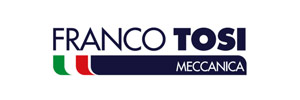
Franco Tosi Meccanica SpA (FTM) was and is still a reference OEM in the power generation industry. Franco Tosi Meccanica is the current name of Franco Tosi, founded in 1881. Through its experience know-how, is able develop, design and manufcature steam turbines, hydraulic turbines, compressors and other turbomachinery such as non-combustion gas turbines and plant systems for the power generation industry. FTM is active in various fields of Renewable Energy such as Hydraulic, Geothermal, Solar Thermal, Biomass and Waste-To-Energy and has been focused on a long lasting policy of investment in R&D. FTM, formerly Franco Tosi, has always been active in researching advanced products, and its first research project in Solar is the realization of a Solar Sodium receiver in the 80s. Currently, FTM is looking to sustainable, integrated vision of energy and marine and terrestrial propulsion market, in which renewables and innovative thermal cycle and machinery plays a fundamental role. Research in scO2 field is part of this vision, and FTM started working on this technology in 2008, with cooperation with ENEA for solar applications and Politecnico di Milano. FTM, formerly Franco Tosi, has been looking to sCO2 thermal cycle as an opportunity since the first studies in this subject (in the 60s with professor G. Angelino), and later supplying preliminary turbomachinery design to prof. Angelino of Politecnico di Milano in the 60s and 70s. Today, has a consolidated research cooperations with Politecnico di Milano, and often cooperating with other Italian or European research institutions.
FTM participates in WP3 and its key role in the project is to design, manufacture, and put in operation the sCO2 turbine.
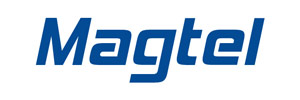
Magtel is a technology company that applies innovative solutions to the design, construction and maintenance of projects in the different sectors in which it operates: telecommunications, energy, environment, railway and civil works/building. Magtel has 590 employees throughout its divisions in Spain, Peru, Paraguay, Portugal and Morocco. It is currently in the middle of an international expansion focusing on Latin America and North Africa. Since 1990, Magtel has been committed to sustainable development, the ongoing training of its employees and constant technological innovation, with management centred on social responsibility, transparency and rigour.
Magtel’s main roles in WP6 are providing demo-site engineering supervision, preparing the pilot plant, legalization, civil works, installation works, maintenance inspections, and site operation coordination. Magtel also participates in WP 1’s techno-economic model development and supports engineering integration of sCO2 turbine/compressor, HEX, EH and control system (WP3, WP4, WP5).
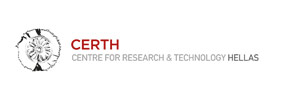
The Centre for Research and Technology Hellas (CERTH) is one of the largest research centres in Greece located in Thessaloniki. It was founded in 2000. The mission of CERTH is to promote the triplet Research – Development – Innovation by conducting high quality scientific research and developing innovative products and services while building strong partnerships with industry (national and international) and strong collaborations with research centres and universities in Greece and abroad. CERTH is essentially a self-supported Research Centre generating an average annual turnover of ~ € 25 Million coming from: >60% from competitive research projects, >30% from bilateral industrial research contracts, and <10% as government institutional funding. More than 700 people work at CERTH with the majority being scientists. CERTH has received numerous awards and distinctions such as the European Descartes Prize, the European Research Council (ERC) Advanced Grant, Microsoft International Contest Prize, the Trading Agents Competition Award and many more and is listed among the Top-20 of the EU’s Research Centres with the highest participation in HORIZON 2020 competitive research grants.
From CERTH, Chemical Process & Energy Institute (CPERI) will participate in order to fulfil the objectives of this project. CPERI is classified among the Institutes of Excellence in Greece and employs a scientific staff of about 250 people, while its inflows is around to EUR 10 million €/year. In this light, the total budget of bioenergy and energy recovery projects by the utilisation of clean fuels is until now over 14 million €. Moreover, it holds the 16th position among the European Research Institutes (top 50 REC organisations) having signed grant agreements in FP7 in terms of counts of participations for the period 2007-2013. On March 30, 2012 Chemical Process Engineering Research Institute (CPERI) merged with Institute for Solid Fuels Technology and Applications (ISFTA) to establish the Chemical Process & Energy Resources Institute (CPERI). The new established Research Institute is a member of the Centre for Research and Technology-Hellas (CERTH). CPERI contributes to the increased competitiveness of the Greek and European industry by providing unique and innovative solutions to research problems of technological and/or commercial interest.
CERTH will be involved in WP4 focusing on the pre-design and the CFD/FEM analysis of the HEXs and the electric heater; and in WP7 on the LCA/LCC assessment of the project concept and its social acceptance and readiness.
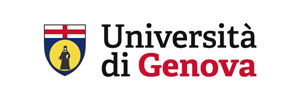
The Department of Mechanical and Energy Engineering – DIME of the University of Genoa includes the “Thermochemical Power Group” TPG (www.tpg.unige.it) and was founded in 1998. Its mission is to carry out theoretical and experimental research in the field of advanced energy systems. Since 2004, the TPG hosts the Rolls-Royce University Technology Centre on Fuel Cell Systems (UTC), with the aim to investigate solutions and technologies for fuel cell stationary power generations. Since 2017, DIME hosts the Fincantieri joint laboratory (HI-SEA) for activities related to clean energy storage and propulsion in the marine environment, namely on boats and ships. The main fields of research of TPG are: development and testing of advanced technologies for sustainable energy systems; dynamic performance modelling of energy systems; thermoeconomic analysis; monitoring and diagnostic techniques for energy systems; innovative closed cycles including supercritical CO2 cycles; high temperature fuel cell technology (SOFC); hydrogen and fuel cell based energy storage and generation (PEM); CO2 separation cycles; energy harvesting solutions based on Tesla bladeless machinery; numerical and experimental investigation on burners and combustion systems for boiler, furnace and gas turbine applications; marine energy devices with focus on wave energy conversion (Seaspoon technology). Original software resources are: WECoMP – Web Economic Cogeneration Modular Program for the deisgn and optimisation of CHP networks; WTEMP – Web ThermoEconomic Modular Program, for thermoeconomic analysis and development of energy systems; TRANSEO – Matlab-based tool for dynamic simulation and control system development.
The TPG permanently collaborates with industrial and public bodies, for research activities and experimental facilities devoted to sustainable and blue energy technologies. In particular in this project the TPG implements his experience on the sCO2 reached through the collaboration with NETL of Department of Energy, USA (CRADA agreement no. AGMT-0562) and provides advise and analysis on plant engineering, giving support in system analysis, off-design performance, transient behaviour and control logics definition.
UNIGE has a leading role in WP5 – Dynamic simulation and control and supporting roles in WP 2 and WP3 contributing to the layout and turbomachinery definition.
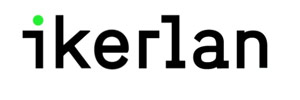
IKERLAN is a leading knowledge transfer technological centre providing competitive value to companies. We seek for excellence in R&D&i, thanks to the continuous adaptation to the needs of our customers and the proximity with the business reality. Faithful to our mission, we have been working daily since 1974 to develop solutions that allow our customers to become more and more competitive. We are a cooperative member of the MONDRAGON Corporation and we are connected to the Basque Research and Technology Alliance (BRTA).
Thanks to a unique cooperation model, which combines technology transfer activities, internal research and training of highly qualified personnel, IKERLAN is currently the trusted technological partner of major companies in the country. To meet our goal, we are structured in three technological specialisation units:
IKERLAN is a centre that is dynamic and open to the world. We are an agent credited by the Basque Network of Science, Technology and Innovation, and we have a major cooperation network integrated by renowned European centres and universities, with which we conduct activities of research and training of researchers.
IKERLAN’s major roles are related to heat transfer, advanced numerical modelling and simulation expertise (CFD/FEM), as well as monitoring and instrumentation definition. IKERLAN will participate in WP1: support SOLARSCO2OL plant definition, WP4: support HEX design by means of CFD simulations and WP5-6: contribute to the definition and lead monitoring campaign.
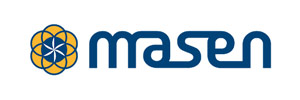
Masen, the Moroccan Agency for Sustainable Energy, is a public funded limited company created by the 59-07 Moroccan law in 2009. Masen’s main mission is to lead development programs of integrated projects aimed at creating an additional 6000MW of clean electricity generation capacity by 2030. The ultimate objective is to reach 52% of the Moroccan energy mix from renewable sources by 2030.
As a large scale solar power plant pre-developer, Masen is a shareholder of one of the world’s biggest CSP sites in terms of electrical production, a solar power plant complex with a total capacity of 580 MW deployed on a 30 km² area in Ouarzazate. Other RE based power plants are being constructed in other cities of Morocco such as Midelt.
In addition, Masen has also the mission of carrying out an effective technological transfer towards Moroccan industries, universities, research centers, and human resources. Among the tools developed by Masen within this scope is the establishment of an R&D platform inside the Solar Comlplex. An applied and pre-operational R&D addressed to an industrial project and the promotion of technological innovation. The R&D platform is a technological showroom for international companies and research institutions to test, evaluate and demonstrate their technologies and scale up their prototypes in real meteorological conditions: high solar irradiation (DNI, GHI) as well as sand and dust storms, paving the ground toward commercialization.
Masen’s R&D platform is surrounded by 3 operational CSP plants and 1 PV plant. It has a platform dedicated to the testing and characterization of mirrors before and after ageing. The R&D platform hosts a stirling-dish technology and a CPV demo, in addition to a PV installation.
Finally Masen is also a member of the Executive Committee of the SolarPACES Project (http://www.solarpaces.org/) and is part of the Organizing Committee of the International conference IRSEC (http://med-space.org/irsec/).
In this project MASEN’s main role is to upscale the SOLARSCO2OL concept up to over 100 MW for the extra-EU market.

Kungliga Tekniska Högskolan (KTH) is Sweden’s largest technical university and accounts for over one third of the national capacity for engineering studies and technical research at post-secondary level. KTH has over 12000 undergraduate students, 1400 active postgraduate students and a staff of 3100.
Throughout the years, energy research and education at KTH has held a leading position both in Sweden and abroad. Today, KTH’s commitment in this field is reflected in sheer numbers: over a third of all departments report energy-related activities with an annual accumulated turnover of about €20 million. A hallmark of KTH’s efforts is a high degree of collaboration with actors on Swedish, European, and international levels. On-campus energy research and education is conducted in groups located at five departments, encompassing over 150 professors, senior researchers, and Ph.D. students.
The Department of Energy Technology at KTH is partnering in SolarSCO2OL. The department is led by 6 professors and about 20 senior staff members and is engaged in numerous national and international research and development projects educating around 25 graduate students towards their PhD.
KTH is the scientific coordinator of this project and leads the Quality Assurance and Scientific Coordination (Task 9.3), including Project planning / Coordinate WP implementation and communication, Collect input and need for changes. Check budget/plan consequences and Support RINA in Executive Action Plan and communication with others.
KTH also leads WP1 “Techno economic Modelling and demo pre engineering”: to develop user friendly Techno economic models for advanced CSP plants with sCO2 cycles; and to support ABE and Magtel in the definition of DEMO layout.
KTH is involved in WP2 and WP4 to follow up component development work and to engage in discussions about correlations for modelling (performance at different sizes, scales, and cost functions); in WP5 as techno economic models can be the basis for the dynamic models to be developed; in WP7 to work with ABE in replication studies for EU (T7.1) and MASEN in Noor 3 replication (T7.2), as the models developed in WP1 will be used for replication; and in WP8, to work in dissemination/trainings with ESTELA and support exploitation with other industrial partners and RINA.

RINA (www.rina.org) is a global corporation that provides services across the Energy, Marine, Certification, Transport & Infrastructure and Industry sectors through a global network of 170 offices in 65 countries. Through its 3.700 talented professionals, RINA provides a wide range of high quality tailored solutions aiming to back up the market operators across the entire life cycle of their projects. RINA will be mainly involved in the project through its operational company RINA Consulting. As the engineering consultancy division of RINA, RINA Consulting provides a wide range of services covering the whole project life cycle from feasibility and specialized technical studies to conceptual and detailed design, prototyping and testing, project management, site engineering as well as operation and maintenance management. Innovation is a key element in all our projects; RINA Consulting has a proven experience in helping its clients, as power plant managers and energy utilities, in developing their new products and services as well as managing their collaborative innovation processes, with a track record participation in H2020 projects.
RINA-C as project coordinator will be involved in:
Necessary cookies are absolutely essential for the website to function properly. These cookies ensure basic functionalities and security features of the website, anonymously.
| Cookie | Duration | Description |
|---|---|---|
| __cfduid | 1 month | The cookie is used by cdn services like CloudFare to identify individual clients behind a shared IP address and apply security settings on a per-client basis. It does not correspond to any user ID in the web application and does not store any personally identifiable information. |
| viewed_cookie_policy | 1 year | The cookie is set by the GDPR Cookie Consent plugin and is used to store whether or not user has consented to the use of cookies. It does not store any personal data. |
Advertisement cookies are used to provide visitors with relevant ads and marketing campaigns. These cookies track visitors across websites and collect information to provide customized ads.
| Cookie | Duration | Description |
|---|---|---|
| IDE | 1 year 24 days | Used by Google DoubleClick and stores information about how the user uses the website and any other advertisement before visiting the website. This is used to present users with ads that are relevant to them according to the user profile. |
| test_cookie | 15 minutes | This cookie is set by doubleclick.net. The purpose of the cookie is to determine if the user's browser supports cookies. |
| VISITOR_INFO1_LIVE | 5 months 27 days | This cookie is set by Youtube. Used to track the information of the embedded YouTube videos on a website. |
Analytical cookies are used to understand how visitors interact with the website. These cookies help provide information on metrics the number of visitors, bounce rate, traffic source, etc.
| Cookie | Duration | Description |
|---|---|---|
| _ga | 2 years | This cookie is installed by Google Analytics. The cookie is used to calculate visitor, session, campaign data and keep track of site usage for the site's analytics report. The cookies store information anonymously and assign a randomly generated number to identify unique visitors. |
| _gid | 1 day | This cookie is installed by Google Analytics. The cookie is used to store information of how visitors use a website and helps in creating an analytics report of how the wbsite is doing. The data collected including the number visitors, the source where they have come from, and the pages viisted in an anonymous form. |
Performance cookies are used to understand and analyze the key performance indexes of the website which helps in delivering a better user experience for the visitors.
| Cookie | Duration | Description |
|---|---|---|
| _gat | 1 minute | This cookies is installed by Google Universal Analytics to throttle the request rate to limit the colllection of data on high traffic sites. |
| YSC | session | This cookies is set by Youtube and is used to track the views of embedded videos. |
Other uncategorized cookies are those that are being analyzed and have not been classified into a category as yet.
| Cookie | Duration | Description |
|---|---|---|
| CONSENT | 16 years 9 months 17 days 12 hours | No description |

